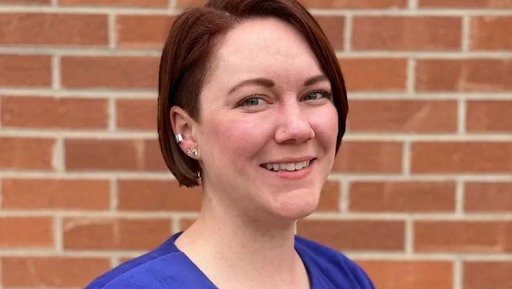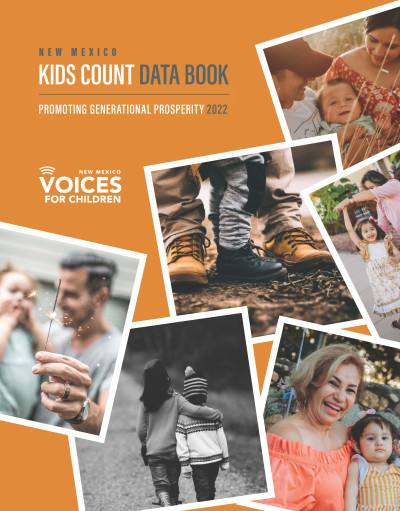Educating New Mexico kids better will be top of mind when the state legislature convenes in January.
Fortunately, lawmakers will have a healthy budget to work with. The projected state revenues for the coming fiscal year is estimated at $13 billion, with about $3.5 billion in “new money.”
Almost 44% of the entire state budget went to education in the current year. The New Mexico Public Education Department is requesting over $5.08 billion from the state’s general fund for the 2025 Fiscal year.
This represents a nearly 21% increase from the previous year’s allocation for public schools.
Poverty in New Mexico directly impacts education.
New Mexico ranks near the bottom of the list of states in educational achievement.
NM Senator Harold Pope, a Democrat from District 23, is the vice chair of the Education Committee. He says a big part of improving education in New Mexico is addressing the barriers to school success.
“We want to continue ensuring that we’re giving the schools the resources they need for students. But it is not just education,” Pope said. “If you don’t have healthcare and you’re sick, you don’t have a place to live, you’re living in your car; how do you go to school?”

In 2018, a major lawsuit – Martinez and Yazzie v. State of New Mexico – challenged the state’s failure to provide an adequate education to students, predominantly low-income, Native American, English language learners, and students with disabilities. The state was found lacking in providing and funding the programs and services necessary for all students to learn and thrive.
One of the proposed Martinez and Yazzie remedies is the Tribal Education Trust Fund, which would help preserve Indigenous culture and languages by investing in tribal community-based education.
The Tribal Education Trust Fund was introduced in House Bill 140 in the 2023 session. However, the bill’s appropriation didn’t make it into law.
“When Representative Derrick J. Lente saw that the funding wasn’t going to be added, he voluntarily tabled the Tribal Education Trust Fund,” said Emily Wildau, of Voices for Children, “with the promise to bring it back in the 2024 session and to request more for the appropriation.”
COVID-19 Pandemic and Education
Another education-related challenge that lawmakers hope to overcome in 2024 is fixing the learning losses caused by the COVID-19 pandemic.
A proposal to lengthen the number of days of instruction is being considered and has garnered complaints by some parents who could be inconvenienced by the changes.
Emily Wildau is the Senior Research and Policy Analyst and Kids Count Coordinator for New Mexico Voices for Children. Wildau also leads their work around food security and education policy, particularly K-12.
“During the COVID, New Mexico kids experienced huge trauma. Many experienced the loss of family members, sudden economic insecurity, sudden housing instability,” said Wildau, “or exacerbation of issues already prominent in their lives.”
“Increases in chronic absenteeism, meaning significantly more students have been missing 10% or more of classes or school days within a school year for any reason.”
With students missing out on a year of social-emotional learning, there were more behavioral issues in classrooms than before COVID.
Emily Wildau, NM Voices for Children Kids Count Coordinator.

The national Kids Count Databook, created by the Annie E Casey Foundation, puts together a national ranking tool.
“New Mexico has been ranked 50th in the nation for a long time, particularly when we look at reading and math proficiency indicators,” said Wildau.
From 2009 to 2022, New Mexico saw 1% fewer fourth graders who are not proficient in reading. At the same time, the U.S. as a whole is exactly flat.

Education Reform/ Think New Mexico
Fred Nathan, Jr. founded Think New Mexico and is its Executive Director.
For the upcoming legislative session, Think New Mexico is working on four bills to improve education in New Mexico.
Think New Mexico will continue working to make financial literacy a high school graduation requirement, a campaign they started in 2019. Nathan explains that this will help students learn how to budget, save, invest, and understand credit and loans.
The organization also seeks to make foreign language a requirement to graduate High School. Nathan says that it can help students be eligible to enroll in more colleges and have more scholarship opportunities.
Reducing class sizes is also one of the bills, said Fred Nathan. According to Mandy Torrez, Think New Mexico’s Education Reform Director, some classes in New Mexico have 35 and 40 students.
“When you’re teaching 27 kids, you know, all you can focus on is just the discipline,” said Nathan. “Your kids focused better if we kept that at 20.”
Nathan also mentioned that school board members need more intentional training.
Think New Mexico’s 2022 policy report indicates that the legislature and governor should increase the annual training requirements for all school board members from five hours to 24, and focus those expanded trainings on how school board governance can improve student outcomes.

The opening day of the 2024 New Mexico legislative session is on January 16.
Barbara Ramirez is a 22-year-old Venezuelan majoring in multimedia journalism and minoring in political science at the University of New Mexico. Barbara and her family moved to Albuquerque in 2016 seeking political asylum.
Follow Barbara on Instagram: ramirez_barbara_01